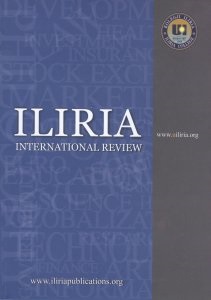Livestock Banking as Innovative Response to Effects of Recurrent Drought in Pastoralist Communities: the Case of Borana, Ethiopia
Livestock Banking as Innovative Response to Effects of Recurrent Drought in Pastoralist Communities: the Case of Borana, Ethiopia
Author(s): Dejene Gemechu Chala, Nega Jibat, Gudina AbashulaSubject(s): National Economy, Agriculture, Economic development, Socio-Economic Research
Published by: Kolegji ILIRIA and Felix-Verlag
Keywords: Borana; Pastoralism; Recurrent Drought; Innovation; Livestock Banking;
Summary/Abstract: This article intends to introduce Livestock Banking as an innovative idea that aims at addressing problems pertinent to recurrent drought among the Borana pastoralists in Southern Ethiopia. Borana are pastoralists whose livelihood is dependent on cattle economy. However, pastoralism among the Borana have been under serious pressure from both manmade and natural factors. Some of these factors are recurrent drought and ever degradation of rangeland, the introduction and expansion of farming at the expense of pastoralism, inter-ethnic conflict, neighbours‟ annexation over Borana rangeland, government induced development interventions with unforeseen negative effects. The idea of Livestock Banking is, thus, designed to build resilience of the communities against the effect of recurrent drought. This innovative idea is initiated based on the Resilient Africa Network (RAN) call for proposals. In the context of this innovative idea, Livestock Banking refers to a community oriented business organization that keeps, exchanges and produces livestock, invests in improving livestock productivity and marketability, loans live animals and gives it back with profit in cash or in kind when the depositor requests. The bank will also serve as local insurance agent against effects of the recurrent drought based on climate forecast. It will participate in preserving best livestock breed and distribute to individual herders up on requests; participate in livestock feed and fodder production; provide veterinary services and trainings to produce professionals in livestock production; have animal product processing factories, invest in livestock fattening, sell quality animal products to international and national markets. Currently, the piloting project of this innovative idea is ongoing.
Journal: ILIRIA International Review
- Issue Year: 10/2020
- Issue No: 2
- Page Range: 11-37
- Page Count: 27
- Language: English

